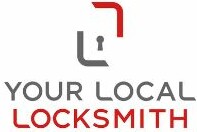

If you are a homeowner, you may be wondering how does a locksmith get bonded. The answer is simple: bonding protects the public by ensuring that the locksmith will pay for damages if anything goes wrong. It’s also a good way to make sure the locksmith is legitimate. Most professional locksmiths are bonded and insured, and their clients are protected by these bonding requirements. Here are some of the steps that every locksmith should follow.
Firstly, a locksmith must register with the state’s licensing bureau. The Small Business Administration can direct you to the appropriate agency. In some states, it is also possible to get bonded through an insurance agency. Once you have registered with the proper agency, you will need to fill out the necessary paperwork and gather the required information. You will also need to give permission to the bonding agency to get your credit and criminal background. In some cases, the Better Business Bureau will also contact you to verify any previous complaints made about your locksmith business.
Next, you’ll have to decide on what kind of insurance you need. Some state governments require locksmiths to carry liability insurance. Others require that the locksmith have some additional training or certification. Some requirements are easier to meet if you’ve been working in the industry for a long time. The locksmith’s business plan may also need to be reviewed. The bonding agency may also require you to have a business plan.
While getting bonded and insured is a good idea, insurance is a far better option. Many states require that non-partner locksmiths have workers compensation insurance. This protects both the locksmith and the client from accidents that may happen while working. The policy also covers lost wages for the locksmith when he’s on the job. Auto locksmith professional liability insurance policy should cover these costs and more. So if you’re wondering, “how does a locksmith get bonded and insured?” consider all the details.
The next step is to verify that the locksmith has a pocket card issued by the Texas Department of Public Safety. This card will show you the locksmith’s name, address, phone number, license number, and other information. If the locksmith doesn’t have a pocket card, send him away immediately. If he won’t give you this card, call the police and demand to speak with a licensed locksmith.
Using a bonded locksmith is an excellent idea, but it’s important to find a professional who has been bonded by the state. You can confirm the locksmith’s bonding status by contacting your local bonding company or by checking with local associations. Then, you can be assured that the locksmith you hire is a trustworthy and professional one. Don’t forget to check his license, and look for it. A genuine locksmith will have his license readily available for you to see.
Another way to check whether a locksmith is bonded is to ask about his criminal record. The criminal history of a potential employee can be a red flag for an unlicensed locksmith. It can affect a locksmith’s ability to protect his customers’ property. If he isn’t bonded, he may not even be able to help you if your car is locked out. If you are a homeowner, a locksmith should be bonded.
